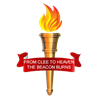PE Curriculum Statement
Intent
The national curriculum for PE aims to ensure that all pupils develop competence to excel in a broad range of physical activities, are physically active for sustained periods of time, engage in competitive sports and activities, and lead healthy, active lives.
We want every child at Clee Hill Community Academy to have a high-quality physical education, inspiring all pupils to succeed, be confident to participate in sport and to understand the importance of their health and fitness. Through a broad and balanced PE curriculum, complemented by a range of extra-curricular clubs and competitions, pupils at Clee Hill have opportunities to participate and excel in physical activities, engage in competitive sports and love learning new skills and knowledge in PE.
We want all of our pupils, in whatever path they choose in life, to be able to lead active, healthy lives.
Furthermore, we want pupils to build values such as teamwork, fairness and respect.
Implementation
The PE curriculum is extensive and progressive. Our PE coaches and class teachers teach fundamental skills throughout the whole school. Our PE curriculum is broken up into a long-term overview which ensures that progression is being made throughout the year groups. Medium term plans and high quality lessons plans are provided by PE Hub which supports staff with effective CPD.
Lessons consist of a warm up, being taught a skill, practising that skill and then applying this skill (usually in a competitive game depending on the sport).
In the Research Review Series: PE (March 2022), it was suggested that there are three pillars to an effective PE curriculum: 1. motor competence – knowledge of the range of movements that become increasingly sport- and physical activity-specific; 2. rules, strategies and tactics – knowledge of the conventions of participation in different sports and physical activities; 3. healthy participation – knowledge of safe and effective participation.
At Clee Hill Community Academy, children revise previously taught skills and sports and then apply this knowledge to new concepts and skills. In EYFS and Key Stage 1, pupils are taught fundamental movement skills. To have the best chances of establishing and maintaining physically active lives both across a broad range of activities and in the long term, it is important that pupils develop secure foundations for movement Locomotor skills (e.g. running and jumping), stability skills (e.g. twisting and balancing) and manipulation skills (e.g. throwing and catching) are taught and developed throughout EYFS and Key Stage 1.
Pupils then apply these through a variety of sports in Key stage 2 to embed their knowledge and skills to competitive game-based learning. Tactics are developed as well as fundamental movement skills throughout Key Stage 2. Although a range of sports are taught across a broad curriculum, the focus sports are:
- Athletics
- Dance
- Gymnastics
- OAA
- Swimming
- Football
- Netball
Pupils have several opportunities in unstructured times to be active and healthy, due to our play equipment, active 'blue mile' trail and outdoor gym. Teachers also incorporate brain breaks into the school day to refocus pupils and ensure that we are active for at least 30 minutes every day in school.
Our Early Years Curriculum
As part of our EYFS curriculum, there are milestones which have been carefully constructed with an end goal, to reflect our own dynamics and environment to meet our children’s needs, whilst ensuring a stimulating, challenging and diverse curriculum. Although many aspects of the Early Years Curriculum develop a solid understanding for PE in Year 1, 'An Amazing Athlete' is of particular importance to show the progression of learning through Nursery and Reception.
EYFS Curriculum milestones and goals
Enrichment Opportunities
Running Club - the 'Run Arounds' race every Friday lunchtime and tally up the metres to win special awards including the 1 mile club sticker, the 5 mile club sticker and the Half-Marathon Medal.
Football Club - Kidderminster Harriers run special football training sessions in the Autumn Term for upper Key Stage 2 pupils. This includes in school training sessions and an after school club (Monday after school - Autumn term).
Sports club led by sports leaders - ran by sports specialists, this may be multi-skills or a focused sport and varies for different year groups throughout the year.
Netball Club - Netball club runs on a Thursday night all year around (except Spring 1). This is available for all Year 4,5 & 6 pupils.
Impact
Children have the knowledge and skills necessary to lead active, healthy lives and are able to communicate effectively, demonstrating respect and compassion.
Children are physically literate, motivated and have good all-round well-being. We see children choosing to be active in their unstructured time. Staff note that almost all pupils are active during both break times each day.
In addition to the PE lessons and forest school, outdoor learning and physical activity in class, every pupil is active for at least 30 minutes each day. This is due to our active blue mile, outdoor gym, Jumping Jaxx , brain breaks in lessons and because of the break time equipment such that we provide for pupils.


 Shropshire School Games Gold Award
Shropshire School Games Gold Award 


